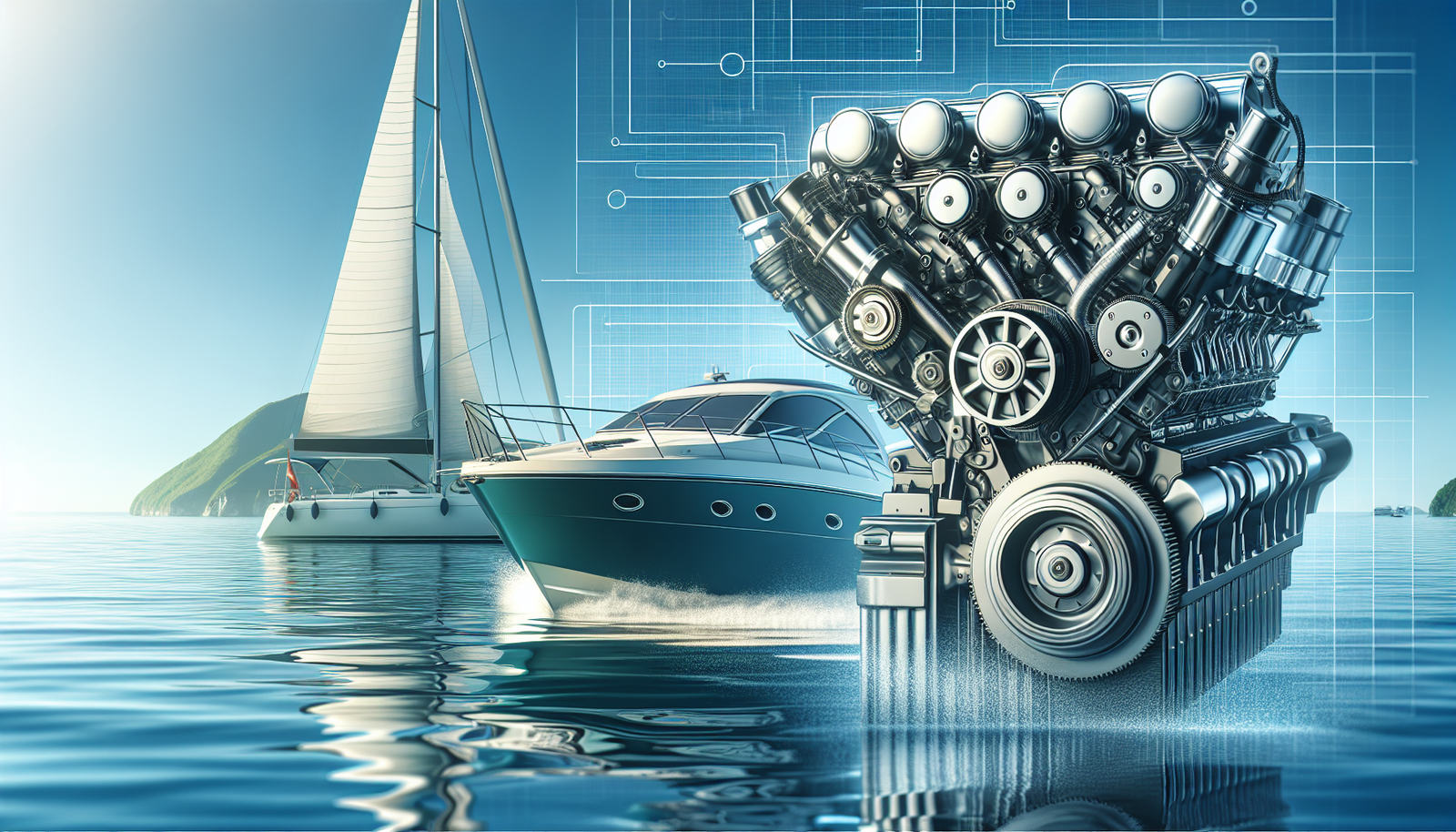Imagine a perfect day on the water. Sun gleaming off the surface, tranquil breeze, and you, behind the controls of your beloved boat. It seems like nothing could ruin such a day, until you hear an odd noise from the engine. That’s when the day starts going south. Don’t let a faulty engine turn your smooth sail into a choppy ride. Let’s take you through the essential boat engine safety tips for smooth sailing. These tips are geared not only to improve your boat’s performance but most importantly, to ensure your safety onboard.
Understanding the Basics of Your Boat Engine
Sailing on the open water is an exhilarating experience, but it requires knowledge and skill to ensure smooth operation, particularly when it comes to understanding your boat engine. To ensure this, you must know the ins and outs of your boat engine, from the basic functions to the mechanics of how it operates.
Familiarize Yourself with the Boat’s Manual
The first step you should take is to familiarize yourself with your boat’s manual. As tiresome as it may sound, it is an essential part in understanding how your boat’s engine works. The manual provides you with the basic information about your boat, its operation, its parts, and simple troubleshooting solutions whenever something goes wrong.
Know the Main Components and Their Functions
The next step is to familiarize yourself with the main components of your boat engine and their functions. This includes the propeller, the engine itself, the cooling system, the fuel system, the electrical system, and more. Being knowledgeable about these augment your understanding about the mechanics of your boat engine and assist you in performing basic repairs when needed.
Grasp the Mechanics of How the Engine Works
Lastly, understanding the mechanics of how the engine works is fundamental for boat users. This includes understanding the combustion process that powers your boat, how fuel is used and filtered, and how the cooling system plays a critical role in maintaining the efficient operation of your engine.
Regular Inspection and Maintenance of Boat Engine
Regularly inspecting and maintaining your boat engine can help identify and solve potential problems that could interrupt your sailing adventure.
Scheduled Tune-ups and Inspection
A regular schedule for tune-ups and inspections helps you keep your boat engine in top condition. Checking the engine components, such as belts, cables, and hoses, can prevent any serious damages and unforeseen problems.
Importance of Oil Changes and Filtration Systems
Never underestimate the power of a proper oil change. It’s crucial to keep clean oil running through your boat’s engine to ensure that it’s lubricated and running smoothly. Similarly, ensuring a functioning oil filtration system will keep away any impurities that can cause damage and decrease your engine’s lifespan.
Ensuring Proper Engine Lubrication
Proper lubrication is essential to the smooth operation of your boat engine because it reduces friction among the moving components. Reduced friction means lesser heat generated, resulting in an efficient and longer lasting engine.
Spotting and Addressing Engine Leaks
A keen eye for spotting leaks can save you from greater damages. If you spot traces of oil or coolant around your engine, it could indicate a leak. Neglected leaks could lead to overheating, decreased performance, and even severe engine damage.
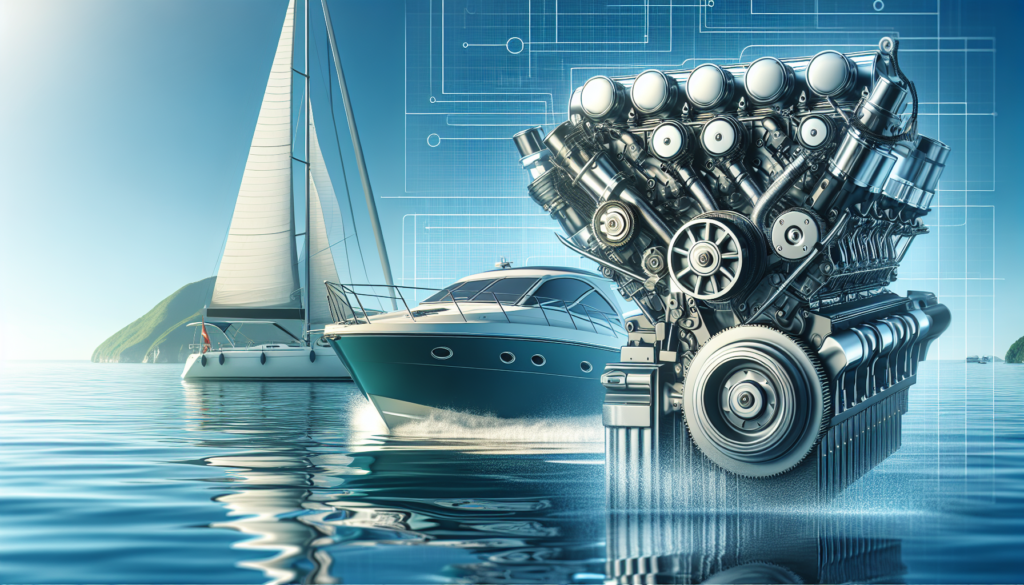
Importance of Cooling Systems and Overheating Prevention
Your boat’s engine, like any engine, generates heat and needs proper cooling to function efficiently.
Understanding the Importance of Cooling Systems
Cooling systems are vital in managing your engine’s temperature while it’s running. Without it, your engine may overheat, which could result in costly repairs or even complete engine failure.
Recognizing Signs of Overheating
It’s crucial to know the signs of overheating like high temperature readings, loss of power, and unusual engine noises. Should any of these occur, you should immediately take steps to cool your engine down.
Troubleshooting and Handling Overheating Issues
If your boat engine is overheating, you should address it promptly to prevent damage. This can vary from ensuring that the coolant is at the correct level to checking for any obstructions in the cooling system.
Fuel Systems and Boat Engine Safety
Fuel systems play an integral part in your boat’s operation. Ensuring their proper function contributes a lot to your boat engine safety.
Strict Adherence to Fuel Handling Safety
Fuel, being highly flammable, poses significant risks when mishandled. Always ensure that you’re following safety measures when refueling, like turning off your boat’s engine and ensuring sufficient ventilation.
Proper Fuel Quality and Fuel Filters
The quality of fuel used in your boat plays a large role in your engine’s performance. Bad quality fuel can harm your engine. Using proper fuel filters will help you filter out any impurities leading to a smoothly running engine.
Importance of Air Ventilation to Prevent Fume Build-up
Proper ventilation on your boat can prevent potentially dangerous fumes from building up in the engine compartment. Having good ventilation will help disperse fuel vapor, reducing the risk of explosion or fire.
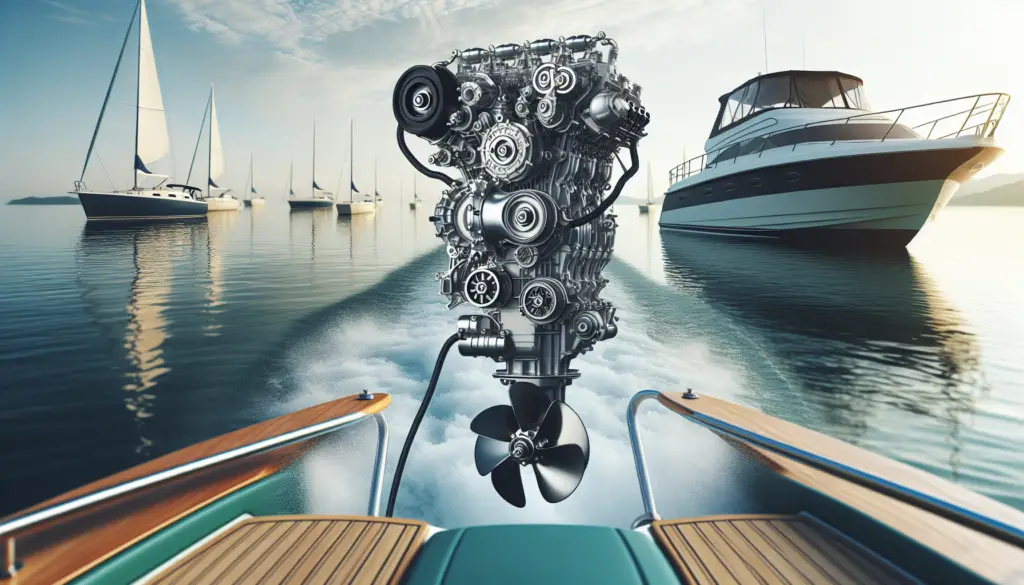
Proper Electrical System Maintenance
Electrical systems on a boat, while often overlooked, play a huge role in your boat’s operation.
Safety Practices in Electrical System Maintenance
When dealing with your boat’s electrical system, always prioritize safety. This can involve ensuring that wiring is in good condition, fuses are functioning properly, and batteries are stored securely.
Preventing Corrosion in Electrical Components
Since your boat is exposed to water, your electrical system may be prone to corrosion which can interfere with your boat’s performance. Preventing or promptly addressing any signs of corrosion is crucial in maintaining the functionality of your electrical components.
Backup Systems for Electrical Failure
Executing a back-up plan in case of electrical failure might be the difference between being stranded at sea and safely returning to shore. This could range from having extra batteries onboard to a portable generator for emergency power.
Boat Propeller Safety Measures
Your boat’s propeller is a crucial part of your engine system.
Importance of Regular Propeller Inspection
Regular inspection for propeller damages or obstructions ensures it’s working at its maximum efficiency. Damaged propellers can affect your boat’s speed, fuel consumption, and even cause damage to your engine.
Safety Procedures When Handling the Propeller
The propeller is a potential hazard when not handled correctly. Always be careful to avoid injuries when the engine is running, and make sure the engine is off when you’re inspecting the propeller.
Understanding Propeller-Related Hazards
Understanding the hazards related to your propeller, like the risk of injury due to its sharp and swiftly rotating edges, can help prevent accidents and injuries on board.
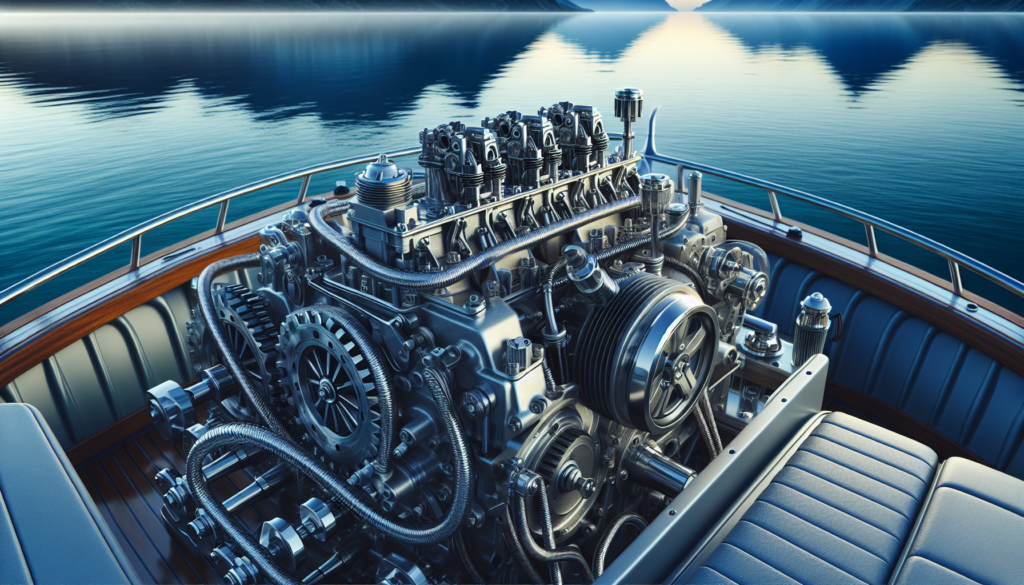
Implementing Good Operators Practices
Piloting a boat demands responsibility and adherence to good operator practices.
Boater Safety Training and Education
As a boat operator, safety should always be your priority. Boater safety courses can provide you with valuable knowledge on how to safely operate your boat and how to handle emergency situations.
Safe Speeds and Awareness of Surroundings
Maintaining safe speeds and being aware of your surroundings can help you avoid accidents and collisions. Always be attentive to other boats, swimmers, and any potential obstacles in the water.
Balancing and Loading Your Boat Correctly
To ensure smooth and safe sailing, your boat needs to be properly balanced and loaded. Overloading or uneven loading can make your boat unstable, increasing the risk of capsizing.
Emergency Preparedness and Boat Engine Safety
In the event of an unexpected situation, being prepared can make all the difference.
Having a Functional Safety Gear Onboard
Ensure that your safety equipment such as life jackets, fire extinguishers, and first aid kits are on board and accessible. These tools are indispensable in case of emergencies.
Devising and Practicing an Emergency Plan
Having an emergency plan and practicing it with your crew or passengers will ensure everyone knows what steps to take in case of an emergency.
Learning Basic Repair and Troubleshooting Skills
Knowing how to perform basic repair and troubleshooting skills can save your trip from being cut short. This entails knowing how to fix minor engine or other system malfunctions that might occur.
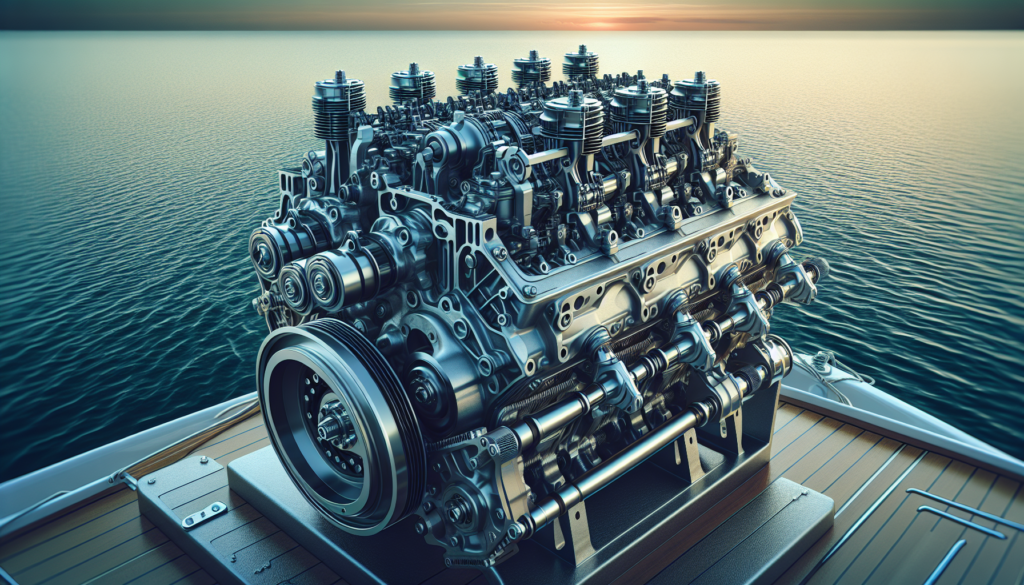
Environmental Considerations in Boat Operation
Boating should not only be about enjoyment but also about being responsible and considerate towards the environment.
Understanding Impact of Boating on Environment
Understanding the environmental impact of boating activities allows you to take steps in minimizing its negative effects. This may involve managing waste correctly, not discarding anything overboard, and avoiding disturbance to marine life.
Promoting Clean and Responsible Boating
As a boater, it’s your responsibility to ensure your activities do not harm the environment. This includes maintaining your boat to prevent fuel or oil leaks, which can harm marine ecosystems.
Procedures for Safe Disposal of Engine Fluids
Safe disposal of engine fluids is essential in preventing chemical pollutants from leaking into the water bodies. This could involve using designated waste oil facilities or professional services for disposing engine fluids.
Seasonal Care and Winterization of Boat Engine
Seasonal changes require different care routines to keep your boat engine functioning at its best.
Tips for Boat Care During Different Seasons
Each season presents different conditions for boating. This could mean taking precautions against increased humidity in summer, preparing for colder starts in winter, or dealing with increased debris in autumn.
Understanding How to Winterize Your Boat Engine
Winterization is a series of steps to prepare your boat engine for colder conditions. This involves draining the fuel and coolant systems, disconnecting batteries, and covering the boat to protect it against harsh weather conditions.
Addressing Common Engine Issues Post-Winter
Coming winter, your boat’s engine might face a few challenges such as dead batteries, cracked hoses, or water in the fuel system. Understanding how to address these common problems will ensure your boat is ready to hit the water when the season changes.
The sea can provide adventures and memories that last a lifetime. By taking the necessary precautions and performing regular maintenance on your boat engine, you will ensure the safety and durability of your vessel for many trips and years to come.

